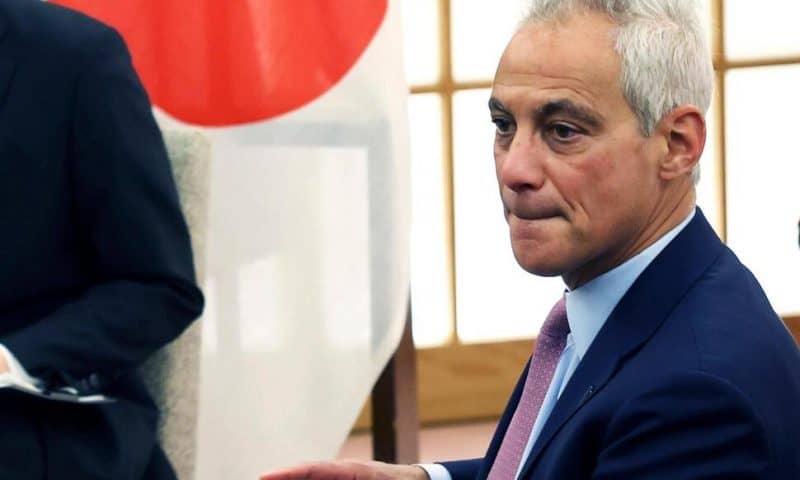Japan has decided to divert some of its gas reserves to Europe amid growing concern over disruptions of supplies due to the Ukraine crisis.
TOKYO — Japan has decided to divert some of its gas reserves to Europe amid growing concern over possible disruptions of supplies due to the Ukraine crisis, Economy, Trade and Industry Minister Koichi Hagiuda said Wednesday.
The decision was made at the request of the United States and European Union and is intended to help European countries cope with uncertainties about gas supplies given fears of a possible Russian incursion into Ukraine, he said after meeting with U.S. Ambassador Rahm Emanuel, who arrived in Japan in late January.
Emanuel welcomed Japan’s offer.
“Japan’s assistance to Europe is an example of how President Biden and Prime Minister Kishida are working closely together with like-minded partners to deter Russian aggression against Ukraine, and uphold our shared values,” Emanuel said in a statement.
Russia is the third-largest oil producer after the U.S. and Saudi Arabia and the source of about 40% of the natural gas used in Europe. With gas and oil prices already high, any move to cut the flow of energy could be painful to Europe.
The United States and European allies have pledged economic and political sanctions if Russia moves its military into Ukraine, but worry about potential repercussions such as the possibility of Russia halting its natural gas supplies to Europe in the middle of the winter.
U.S. and European officials have been coordinating with natural gas suppliers around the world to cushion the impact in case Russia cuts off natural gas supplies over the Ukraine conflict.
With some 100,000 Russian troops massed at the Ukraine border, experts say Qatar — the world’s second-biggest exporter of liquefied natural gas, or LNG — is eager to help again but might only be able to offer limited assistance.
Japan is a major importer of LNG. Hagiuda said it is contributing its excess supply after securing enough for its domestic needs for the coldest month of February.
“Our country also faces a difficult situation with LNG for February,” Hagiuda said. But he added that “In light of requests from the U.S. Ambassador to Japan Emanuel, and given the severe gas shortage situation in Europe . . . we have decided to cooperate, on the premise that stable supply to Japan is secured.”
Hagiuda also met, separately, with EU ambassador to Japan Patricia Flor on Wednesday.
The exact amount of LNG to be diverted was not disclosed. Government officials have been negotiating with Japanese gas companies about the plan, he said.
During his talks with Emanuel, Hagiuda also noted the importance of further deepening and expanding “broad and inclusive” economic cooperation between Japan and the United States and across the Indo-Pacific region.

